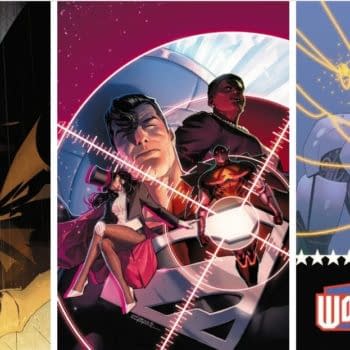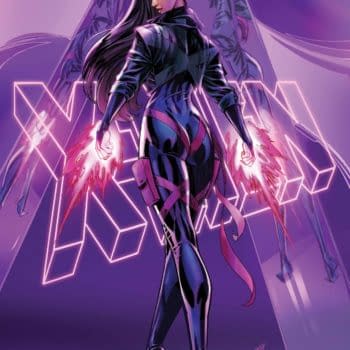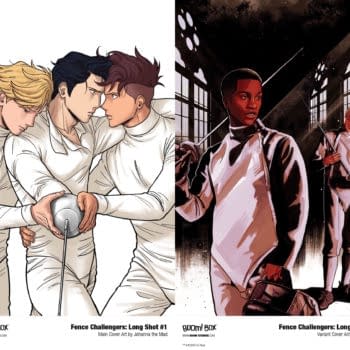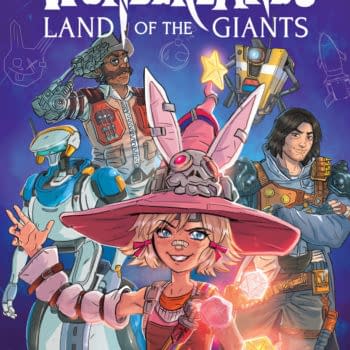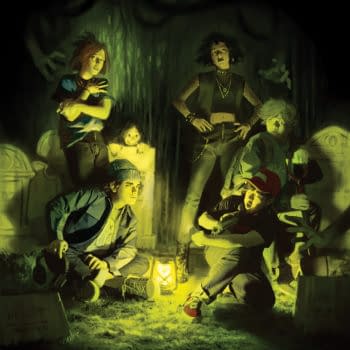Posted in: Comics | Tagged: Batman, bruce wayne, Comics, dc, HRL, june chung, Mikel Janin, scott snyder, the dark knight, Tom King
A Batman Lover Comes To The Dark Knight's Defence
Recently, my fellow Bleeding Cool writer Joshua Davison reviewed Batman #25 by Tom King, Mikel Janin and June Chung. He gave it a rather average score of 5 out of 10. I also reviewed the very same issue and gave it the somewhat more favourable score of 10 out of 10.
Now, some seem to be under the impression that we here at Bleeding Cool are all of a singular opinion. Far from it, of course. We each have our own views, opinions, and favourite characters and stories. Now, seen as Joshua used his article to discuss his reasons for not enjoying the character of Batman in general, I figured I'd offer a handy counterpoint to his issues.
Now, Joshua's first issue was how Bruce Wayne, the Dark Knight, is somewhat unlikeable, particularly compared with some of his supporting characters. But for me, I think that's the point. Sometimes, you're not meant to like Batman. Sometimes he is brash, or callous, or closed off. Sometimes, he's practically unknowable. It adds to the idea of him as a shadow, a phantom that stalks the night. It helps us understand how he can draw such fear, for a bloke in a rodent costume, because that kind of person in life can be pretty scary. The man you never know what will do next. But that is not the key to what makes Batman such an interesting character.
Joshua raised a good point, though, in Batman's link to mental illness. Either the critical theory of his villains as avatars for mental health issues, or the character himself as a sufferer of what would be a combination of mental health issues. And these things are part of what makes Batman so fascinating and attractive as a character.
Of DC's Trinity, Batman is the only one who is a normal, mortal, human man. Batman is the one who is most like us. For better or worse. Superman is a near-indestructible living god, an alien to our world who has taken on the best aspects of us and provides hope for what we can be. Wonder Woman, at times, is a god or demi-god or magical being, who represents the finer ideals of the human condition: our empathy, compassion and love, and our desire to protect the rights of all to those things.
Batman, however, is a man, with all the complexities that entails. He is at times conflicted or laser-focused. He is boiling rage or cool indifference. He is the shadow that makes us jump in the night, or our own righteous anger to stand up. He is the most prepared person on the planet and the most fallible. He can be the ranger of all of us, our light and our dark.
A friend of mine recently came up with a wonderful distinction that I think serves here: we are meant to be able to relate to Marvel heroes. DC heroes are meant to inspire us.
One of Joshua's biggest problems with Batman is how so often Batman winds up used as some kind of deus ex machina, who swoops in and solves absolutely any problem, no matter how unlikely. Because he's Batman.
I can certainly understand that complaint. There are times it can seem kind of ridiculous. But this is comics. The hero will always win, and sometimes the situation are so ridiculous, balls-to-the-wall bizarre as to be comedic out of context. It's part of why I'm so excited for Metal — it promises to be so over the top, and I'm expecting it to be a wild ride.
But that is what is inspirational about Batman. He's a man, like us, crippled by the pain of the horrors he's seen in life, tortured by the things he cannot stop, but he keeps trying. He keeps standing up. And eventually, he succeeds.
It's the hope of man. No matter how hard, we can rise. We can stand up. Our frail, and conflicted and broken people can succeed in the end, if we just stand up to the most seemingly insurmountable odds.
Joshua argued that Batman isn't mortal anymore, and has become the most powerful hero of DC by virtue of his name alone. But I'd argue he's not. He's broken, and damaged, and while his failings may not be beating the bad guy, he certainly has plenty of others. Sometimes he's a bad father. Sometimes he's a bad friend. Sometimes his self-assuredness leads to his greatest defeats. But despite this, he tries, he fights, and eventually, yes, he will win.
As for Batman being the most-idolised hero, despite being borderline psychotic, well, aren't most of the superheroes in comics? I mean, they solve the majority of their problems by punching them really hard. But in the case of Batman, I see it as about someone who has been through some of the worst things, and fights through it anyway. Sure, it isn't in a healthy way. He dresses up as a bat and throws himself from rooftops, but he is a man damaged and haunted by mental illness and who fights through it to do the right thing. He shows us how our problems don't have to define us, but they often will always be a part of us — and that's okay.
Today sees the release of Batman #26. Both I and Joshua intend to review it. I wonder if anything will change.














